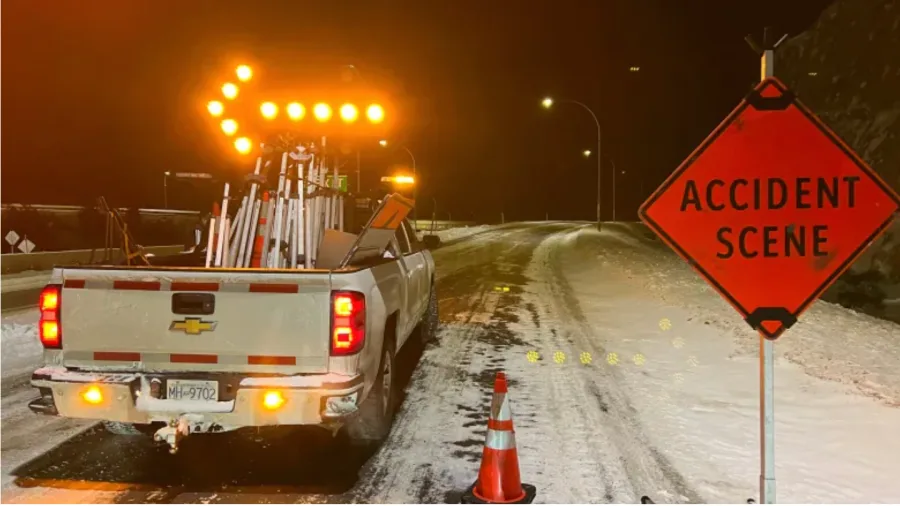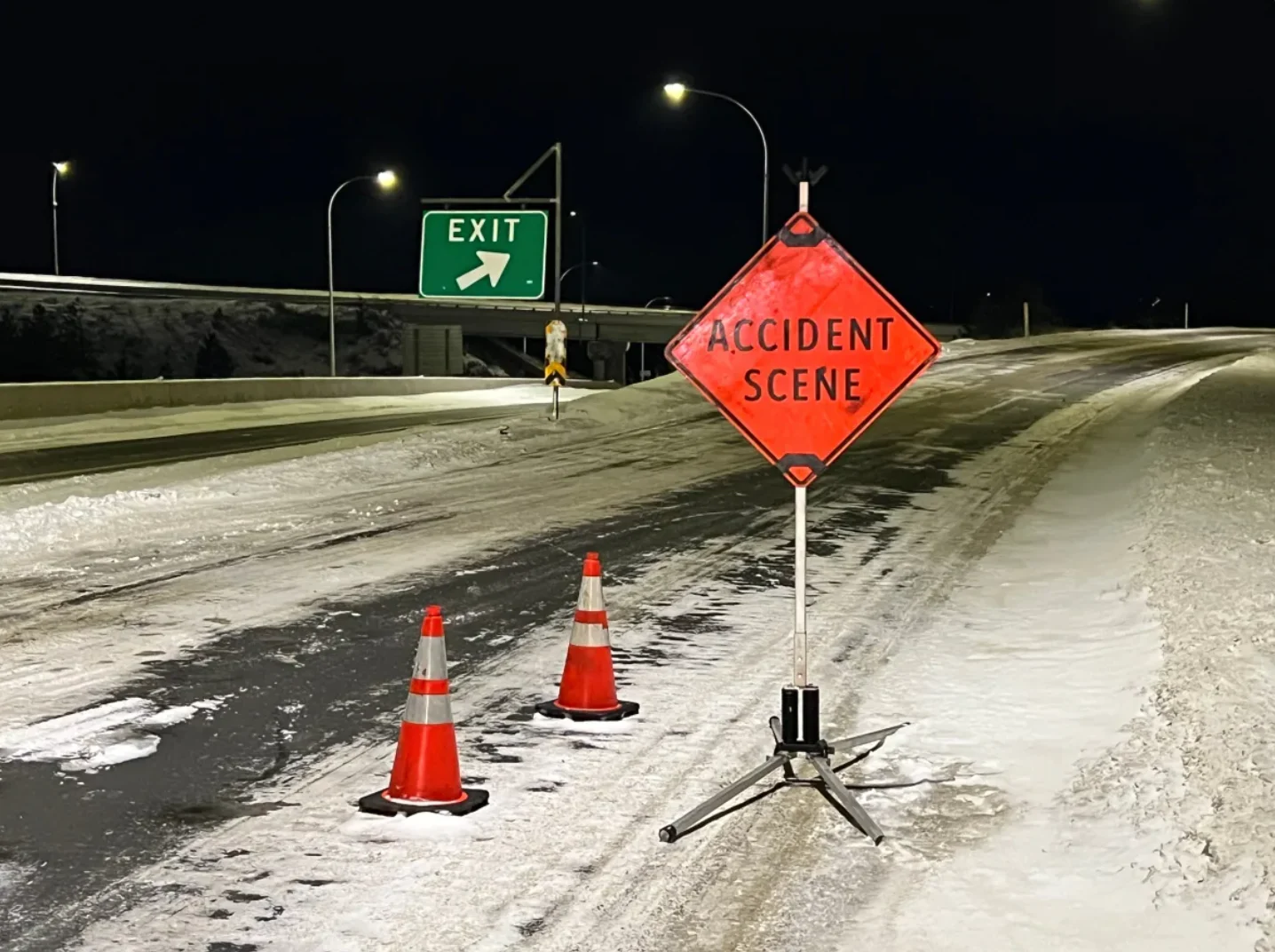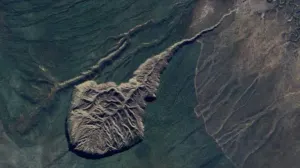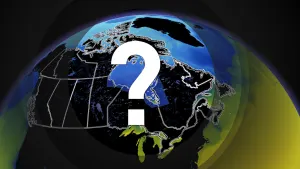
4 dead after Christmas Eve bus rollover on B.C. Highway 97C, dozens injured
Four people are dead following the Christmas Eve bus rollover on B.C. Highway 97C that sent over 50 people to hospitals, RCMP confirmed Sunday afternoon.
Word of the crash first came when DriveBC, the communications arm of the B.C. Ministry of Transportation, tweeted about a "vehicle incident" that shut the highway around 7 p.m. PT Saturday on the stretch of Highway 97C also called the Okanagan Connector, near the Loon Lake exit.
The local health-care authority, Interior Health, said in a statement Sunday that 52 people in total were sent to hospital as a result of the crash. Of those, 36 required treatment.
Interior Health says eight people were still in hospital early afternoon Christmas Day. Two of them were in serious condition, the authority said in a statement.
RELATED: Days of rain to come as atmospheric river washes out B.C.’s Christmas
B.C. RCMP said in a statement Sunday that it is believed the "extremely icy" road conditions along the highway caused the bus rollover, but an investigation into the exact cause continues. The bus was operated by Ebus, an Alberta-based bus operator with multiple routes across B.C.
"Although the number of patients remaining in hospital is low, this is a life-altering incident for all involved, from the initial physical injuries to the emotional and spiritual impacts of an incident such as this," the Interior Health statement read.
Highway 97C is 224 kilometres and runs east from Cache Creek in the central Interior to Kelowna in the Okanagan Valley, B.C.'s third largest metropolitan area.
According to DriveBC, the bus crash happened near the Loon Lake exit of the highway, which is 330 kilometres east of Vancouver and around 85 kilometres west of Kelowna.
Code Orange incident
Health Minister Adrian Dix said the incident prompted Interior Health to initiate a Code Orange response to provide emergency care. Code Orange is generally used to describe a mass casualty or disaster situation at hospitals.
Interior Health said Sunday morning on Twitter it has set up an information line for families to locate loved ones involved in the accident: 250-545-2211.
"My deepest gratitude to the first responders and medical teams who responded immediately to the call," Dix said in a statement.
The Conservative MP for the area, Dan Albas, expressed his condolences to the people injured in the crash through social media, as did B.C. Premier David Eby on Saturday.
DriveBC said the highway connecting Merritt and Kelowna was closed overnight between West Kelowna and Aspen Grove.
It reopened around 8:20 a.m. Christmas Day, according to DriveBC.
The crash comes after a week of winter storm warnings brought significant snow throughout B.C., including to the Southern Interior where the crash happened.
On Sunday, Environment Canada issued a freezing rain warning for the Okanagan Connector between Merritt and Kelowna. Freezing rain is expected to fall in the Southern Interior through Monday morning.

The passenger bus crash on Christmas Eve happened near the Loon Lake exit of B.C. Highway 97C, which is 330 kilometres east of Vancouver in the Southern Interior. (Jay Bertagnolli/CBC)
Bus operator says drivers trained for weather
John Stepovy, a director at Ebus, told CBC News that the bus in question was travelling from Kelowna to Vancouver. Stepovy said he did not have further information on the cause of the crash and Ebus was co-operating with RCMP investigators.
Stepovy said all Ebus drivers were "extensively trained" for winter conditions.
"We have a bus simulator, very similar to what airlines use for their pilots," he said. "[All Ebus drivers] go through simulator training, winter condition training."
This article, written by Akshay Kulkarni, was originally published for CBC News.









